
Enzymes: Still cool after all these years
The first enzyme was discovered in 1833, almost 200 years ago and long before the nature of proteins was appreciated. The field of enzymology came into its own in the 20th century. Technological advances in the hands of creative enzymologists led to an ever-growing understanding of how enzymes achieve enormous rate accelerations as well as the structural basis for substrate specificity and allosteric regulation.
Submit an abstract
Abstract submission begins Sept. 14. If you submit by Oct. 12, you'll get a decision by Nov. 1. The regular submission deadline is Nov. 30. See the categories.
Enzymologists continue to break new ground as we enter the 21st century. Our session at Discover BMB will feature new work on enzyme functions, mechanisms and applications.
Our first group of speakers will focus on enzymes that deal with problems caused by misbehaving metabolites. They will describe how enzymes can protect unstable intermediates and repair damaged metabolites. Our second group will explore the potential of using enzymes for biodegradation and green biosynthesis of chemicals currently produced from petrochemicals. Our final group will focus on enzymes that catalyze novel reactions, pushing the boundaries of chemistry accessible through biocatalysts.
Keywords: Substrate channeling, metabolite repair, biodegradation, green chemistry, natural product biosynthesis, radical chemistry.
Who should attend: Anyone who appreciates the awesome power of enzyme catalysis.
Theme song: “Still Crazy After All These Years” by Paul Simon, because enzymes are crazy-efficient catalysts
This session is powered by the ribosome, which produces the enzymes that make life possible.
Cool and novel enzymes
Enzymatic control of problematic intermediates
Chair: Hung-Wen (Ben) Liu

Shelley D. Copley, University of Colorado Boulder
Tom Niehaus, University of Minnesota, Twin Cities
Shelley Minteer, University of Utah
Carole Linster, University of Luxembourg
Enzymes for a sustainable future
Chair: Shelley D. Copley
Gregg Beckham, National Renewable Energy Laboratory
Larry Wackett, University of Minnesota
Michelle Chang, University of California, Berkeley
Raquel Lieberman, Georgia Institute of Technology
New and unusual enzymatic transformations
Chair: Michelle Chang
Hung-wen (Ben) Liu, University of Texas at Austin
Aimin Liu, University of Texas at San Antonio
Sara O'Connor, Max Planck Institute for Chemical Ecology
Wenjun Zhang, University of California, Berkeley
Enjoy reading ASBMB Today?
Become a member to receive the print edition four times a year and the digital edition monthly.
Learn moreGet the latest from ASBMB Today
Enter your email address, and we’ll send you a weekly email with recent articles, interviews and more.
Latest in Science
Science highlights or most popular articles
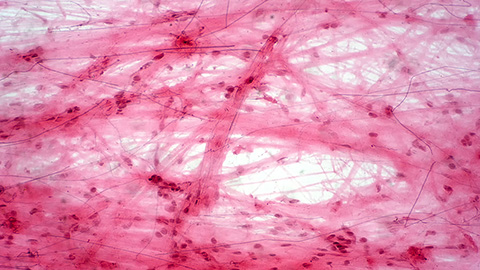
How sugars shape Marfan syndrome
Research from the University of Georgia shows that Marfan syndrome–associated fibrillin-1 mutations disrupt O glycosylation, revealing unexpected changes that may alter the protein's function in the extracellular matrix.
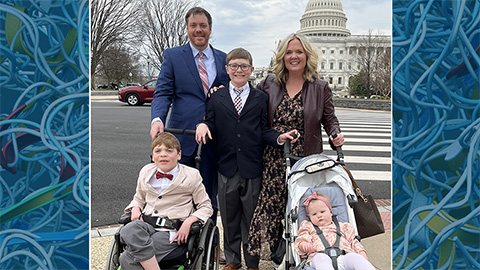
What’s in a diagnosis?
When Jessica Foglio’s son Ben was first diagnosed with cerebral palsy, the label didn’t feel right. Whole exome sequencing revealed a rare disorder called Salla disease. Now Jessica is building community and driving research for answers.
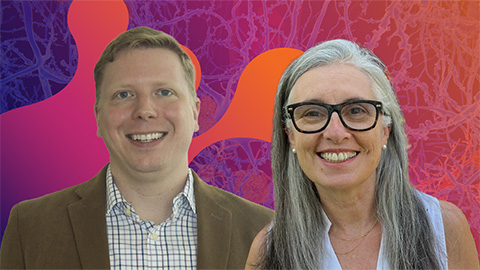
Peer through a window to the future of science
Aaron Hoskins of the University of Wisconsin–Madison and Sandra Gabelli of Merck, co-chairs of the 2026 ASBMB annual meeting, to be held March 7–10, explain how this gathering will inspire new ideas and drive progress in molecular life sciences.
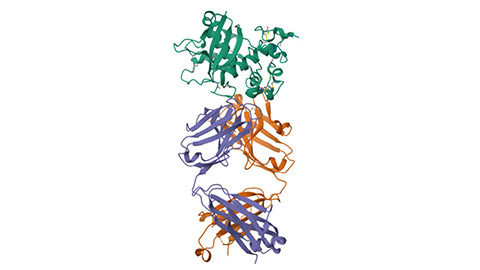
Glow-based assay sheds light on disease-causing mutations
University of Michigan researchers create a way to screen protein structure changes caused by mutations that may lead to new rare disease therapeutics.
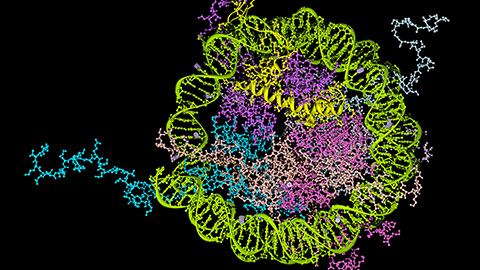
How signals shape DNA via gene regulation
A new chromatin isolation technique reveals how signaling pathways reshape DNA-bound proteins, offering insight into potential targets for precision therapies. Read more about this recent MCP paper.

A game changer in cancer kinase target profiling
A new phosphonate-tagging method improves kinase inhibitor profiling, revealing off-target effects and paving the way for safer, more precise cancer therapies tailored to individual patients. Read more about this recent MCP paper.


